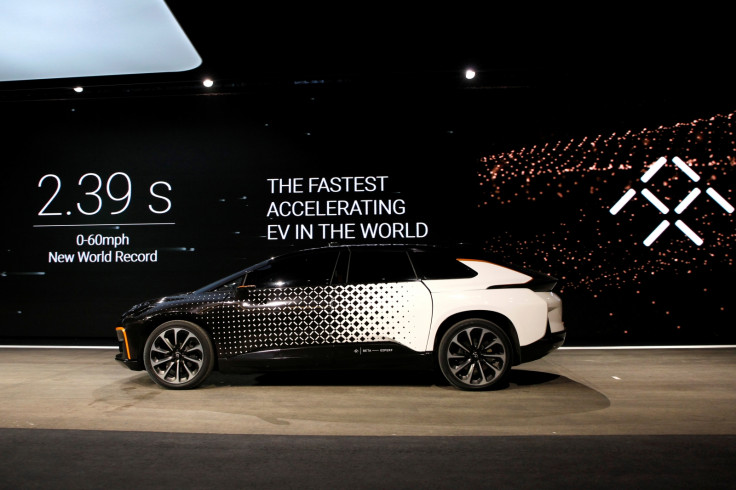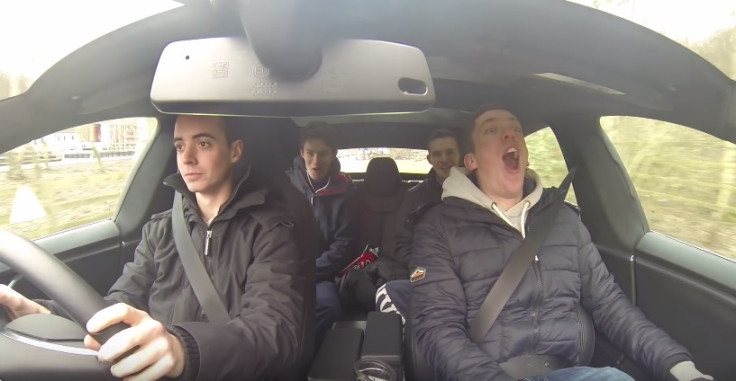The electric car 0-60mph Top Trumps arms race: Pivotal or pointless?
Electric car companies are at war with each other over hundredths of a second and it isn't helping anyone.

A pointless arms race has broken out among electric car manufacturers. This isn't about pushing each other to make their cars go further on each charge, or for prices to be lower – although both of those are happening below the radar. It is about acceleration.
For almost its entire life Tesla has made a big deal about how quickly its cars reach 60 miles-per-hour. First the Roadster went below four seconds, then the most expensive Model S took this down to 3.2 seconds, matching that of the iconic McLaren F1 supercar which Tesla boss Elon Musk once owned (then crashed).
Now, a larger 100kWh battery pack and a hidden 'Easter egg' called Ludicrous+ mode mean the Model S, a five-seat saloon car, can reach 60mph in 2.4 seconds. That is the same as the £2m LaFerrari Aperta and quicker than any mass production vehicle on sale today.
But, not to be outdone, cash-strapped start-up Faraday Future revealed in January, at the CES technology show in Las Vegas, that its first production car, the FF91, can reach the same speed in 2.39 seconds. One-hundredth of a second quicker than the electric Tesla and hybrid Ferrari; the kind of difference easily accounted for by tyre age, quality, or pressure, air humidity, ground temperature, or the road surface.
Update: Just hours after I wrote this, Musk tweeted to say the Model S "might" get its 0-60 time down to 2.34 seconds, beating Faraday Future by 0.05 seconds. Perhaps the arms race is only just getting started...
Promising early results from the Ludricrous Easter egg. Looks like 0 to 60 mph in 2.34 sec (Motor Trend spec) might be achievable...
— Elon Musk (@elonmusk) January 12, 2017
As much as petrolheads (does that work with electric cars?) are easily amused by 0-60 times and the Top Trumps-style argument they invoke, have we not reached a point where it simply doesn't matter anymore? Being made giddy (or scared) by a car's acceleration is about much more than being fired down the road like a roller coaster.
Dropping into the seat of a low-slung Italian supercar, thumbing the starter button, switching to Race mode and being pushed into the seat with the sound of exploding petrol filling your ears and the steering wheel writhing between your fingers is an assault on every sense. A Ferrari 488 might take 0.6 seconds longer to reach 60mph than a Tesla or the car from Faraday Future, but it gets there with infinitely more drama and excitement.
Forgot to mention there will be a P100D Ludicrous Easter egg soon that uncorks the full performance
— Elon Musk (@elonmusk) November 4, 2016
Faraday Future's launch of the FF91 featured a drawn out demonstration of how the Bentley Bentayga, Tesla Model X and Ferrari 488 GTB are all slower to 60 than their car. This is merely a physics lesson. How does the car feel? How does it make the driver feel? These are far more valuable metrics than a traffic light Grand Prix.
Electric car manufacturers are primarily about proving how they can build, sell, run (and hopefully recycle) mass-production vehicles which are convenient and cost-effective without causing the same environmental damage as the internal-combustion alternative. And to that end they are starting to succeed, with great promise shown from the likes of Tesla, Nissan, BMW and General Motors.
Flooring a Tesla is fun for showing off to your mates for three seconds, see below, but some of my passengers have felt genuinely uncomfortable with the spooky way an electric car launches in silence and has no gears to shift between for a moment's respite. Some have demanded, in no uncertain terms, that I do not do that again. And yet the Model S is almost a second quicker now than the last time my passenger hit their head on the seat.

I don't want to sound like a killjoy, and I know that the next time I drive a Tesla I'll set up a GoPro pointing inwards, select Ludicrous mode and laugh at my passengers' reactions. But novelties fade and charging stations are sometimes far away. In five or 10 years' time will electric car makers be boasting about getting a family barge to go below two seconds? Will we get used to Mum's SUV being quicker than a Lamborghini? Or will we become so used to electric cars being mainstream and normal that the drama and thrills of speed and acceleration (and noise) can be returned to their rightful owners?
I have a Ford Fiesta to review this week, the slightly yobbish ST200 version. It does the 60 sprint in 6.7 seconds, a lifetime compared to some electric cars, but it does so with more character than a Tesla ever could. Electric cars absolutely have their place, and I hope one day I'll be able to go off-grid with solar panels and a Model 3. But baiting supercars and boasting about beating a rival by a single, meaningless hundredth of a second? It's just childish.
© Copyright IBTimes 2025. All rights reserved.





















